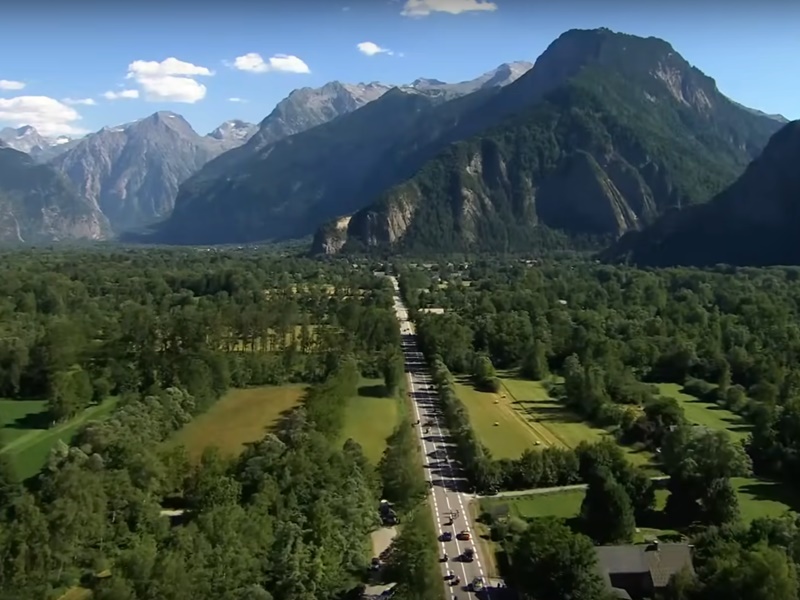
- Preview
- Week 1 recap
- Week 2 recap
The week began with Tadej Pogacar low on team-mates but leading Jonas Vingegaard. The week ended with Vingegaard low on team-mates but leading Pogacar.
I’ll get to how that happened in a moment.
Before then, one of the things I haven’t yet touched on is the performance of superhero superstar Mathieu van der Poel. While not an overall contender, the Dutchman is nevertheless one of the most hyped riders around, but his performance in this race was so underwhelming you may well have missed the fact he was even in it before he abandoned on Stage 11.
Van der Poel’s departure had been coming. He’d been floating the possibility since the first week after finding that he really wasn’t in great form. Why wasn’t he in great form? Because he rode the Giro d’Italia, basically. The rider himself suggested that he hadn’t done “too little” training between the two races, but thought perhaps he didn’t maintain enough intensity.
Or, you know, you could just be kinda worn out after a massive slab of endurance racing.
Sometimes in cycling, there is a reluctance to admit that even the generational talents have their limits. No-one is immune to the consequences of relentless hard riding. Everyone gets tired.
The light softening-up
Week two of the 2022 Tour de France got underway with a spiky “mid-mountain” stage that didn’t have an obvious influence on the overall at the time, but which nevertheless contributed to the fatigue that unavoidably builds in every rider as a three-week race wears on.
It was won by Magnus Cort Nielsen, the Danish rider who is very much The People’s Champion at this year’s race, thanks to his solo breakaway in pursuit of a handful of mountain points back in Denmark and his endearing habit of sprinting for those early summits anyway, even though there was no other rider within minutes of him.
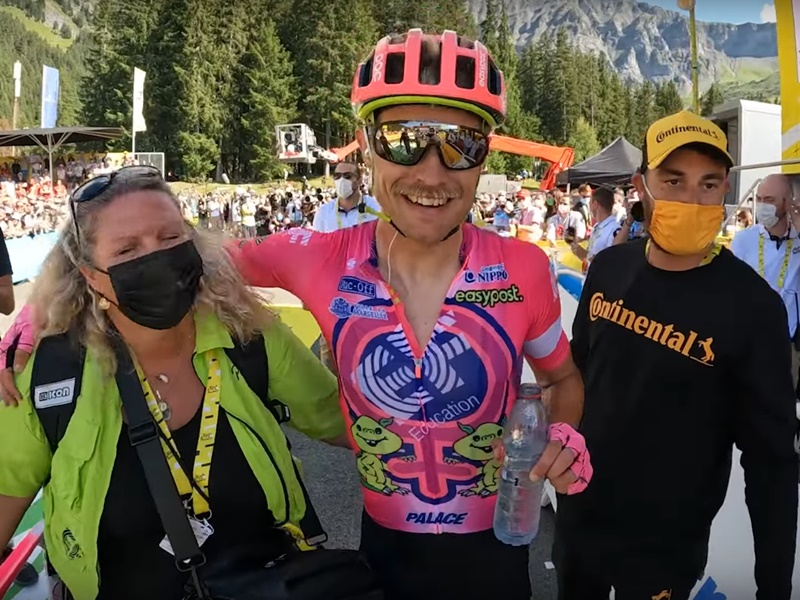
Coming in a few minutes behind the breakaway on Stage 10, Tadej Pogacar did a sprint of his own come the line, creating a gap that really should have been rewarded with a single second time gap by race organisers but for some reason wasn’t. This fed into a narrative of the Slovenian as a new Eddy Merckx, looking to beat his rivals in every area at every opportunity.
But it would only have been a second anyway. If you’re sufficiently dominant that you feel you can sprint for every second, you’re sufficiently dominant that you don’t need that second.
The heavy softening-up
Stage 11, on Wednesday, was an altogether different affair. There is no ‘mid-‘ about the Galibier, at 2,642m the highest point in any Tour de France in which it features. The summit finish on the Col du Granon wasn’t much lower (2,413m) with 11.3km at a severe 9.2% to get to it.
It was the kind of stage on which it’s wise to save your strength. So with a mere 60km to go, Jumbo-Visma started launching attacks…
Very immediately, they’d whittled the peloton down to a favourites group comprising just four riders: their two leaders, Primoz Roglic and Jonas Vingegaard, plus Pogacar and Geraint Thomas.
This was the heavy softening up – and as we’ve established, everyone has their limits.

On somewhat flatter roads, the two Jumbos took it in turns to accelerate, forcing Pogacar to put in an effort to catch them each time. They did it again and again, maybe seven or eight times in quick succession. One, two; one, two. Four accelerations and four times drafting the yellow jersey for Roglic. Four accelerations and four times drafting the yellow jersey for Vingegaard. But crucially, eight accelerations for Pogacar, who was obliged to drive the chase each time. Maybe nine accelerations actually because at one point he also tried to attack himself.
All of these efforts ultimately did for Roglic, but it was a worthwhile investment for the team because on the Col du Granon, they did for Pogacar too.
A lull in hostilities towards the top of the Galibier and on the long descent from it had allowed the favourites group to swell a little, but Roglic had already been distanced once by this point and there was no pretence that it wasn’t going to happen again. He pushed the pace on the lower slopes and then fell away, ambitions sacrificed, teamwork done.

A couple of lesser contenders were permitted to ride away shortly after, but when Vingegaard attacked with 5km to go, you knew that Pogacar would be giving his all to follow him. It was therefore a bit of an “oh hello” moment when he completely failed to stay snug up behind Rafal Majka as his team-mate poured away his last drops of energy in a bid to close the gap.
Pogacar had cracked. The gap wasn’t going to be closed. It was going to grow. Jonas Vingegaard was going to take the yellow jersey.
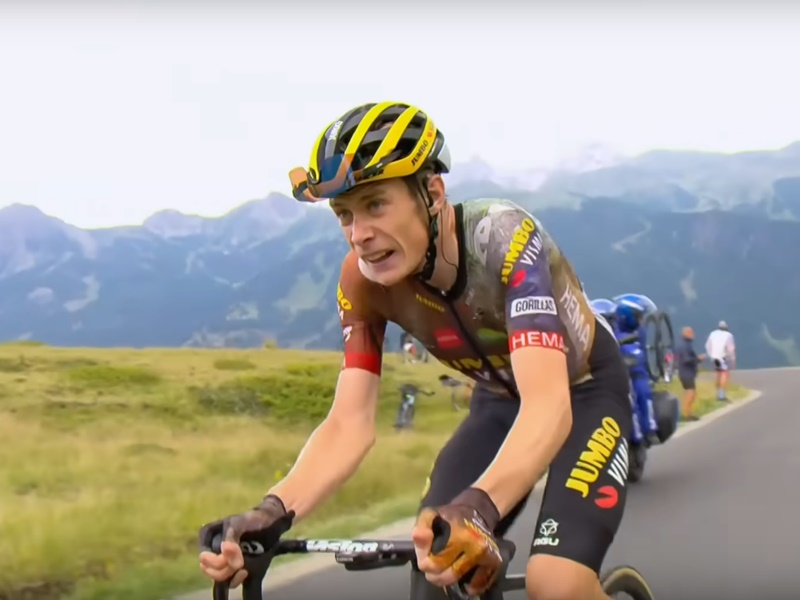
Tadej Pogacar has never yet ridden a Tour de France he hasn’t won. He hasn’t really known about limitations or given a great deal of thought to conserving energy. He hasn’t needed to dwell on these things. They just haven’t been an issue.
Here he learned. You can’t sprint for every stage. You can’t chase down every attack yourself. No matter who you are, these things take some sort of toll.
It wasn’t just Vingegaard who piled on the suffering. A series of riders who Pogacar had left for dead earlier on the climb gradually rematerialised one by one.
Romain Bardet caught him. And then dropped him.
Geraint Thomas caught him. And then dropped him.
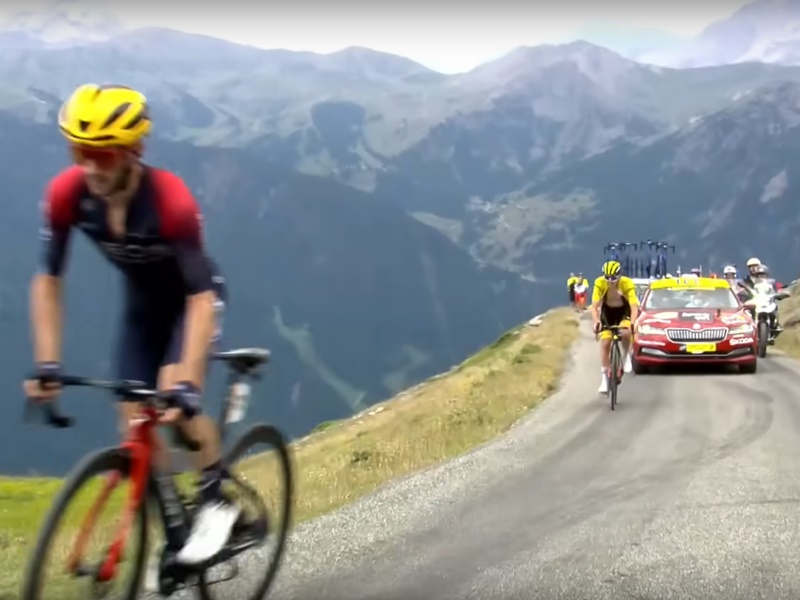
David Gaudu and Adam Yates did the same. Riders who have rarely seen much more than his disappearing arse positively breezed past him. It was, in its own cruel way, spectacular.
Vingegaard had 2m51s on Pogacar by the summit and Bardet leapfrogged him in the general classification too.
Tough day.
The morning after
I’m not too sure what I’d be looking forward to the day after getting methodically bullied and tenderised on the Galibier, but it probably wouldn’t be riding up the Galibier again followed by two even harder climbs.

Tadej Pogacar is not like other people though. He may well have reached his limit the previous day, but the man sleeps well.
In 2020, Team UAE’s head of performance, Íñigo San Millán, told the late and much-missed cycling journalist Richard Moore how Pogacar, “doesn’t have the same accumulated fatigue as the others,” over the course of a stage race.
“In my opinion there are three things,” he said. “The main one is genetics – he has that recovery capacity. The second is his mentality. Three weeks in a Grand Tour can be psychologically hard for anybody but Tadej is very calm. He doesn’t feel the pressure, the stress.
“The third thing is that we’ve been training a lot to improve his lactate clearance capacity and increase mitochondrial function, which of course is partly genetic. And what that means is that day by day he is not as tired as the others.”
I think what San Millan is saying is that not only does the Slovenian recover well, but that this ability reassures him and almost reduces stress, meaning he also has less to recover from.
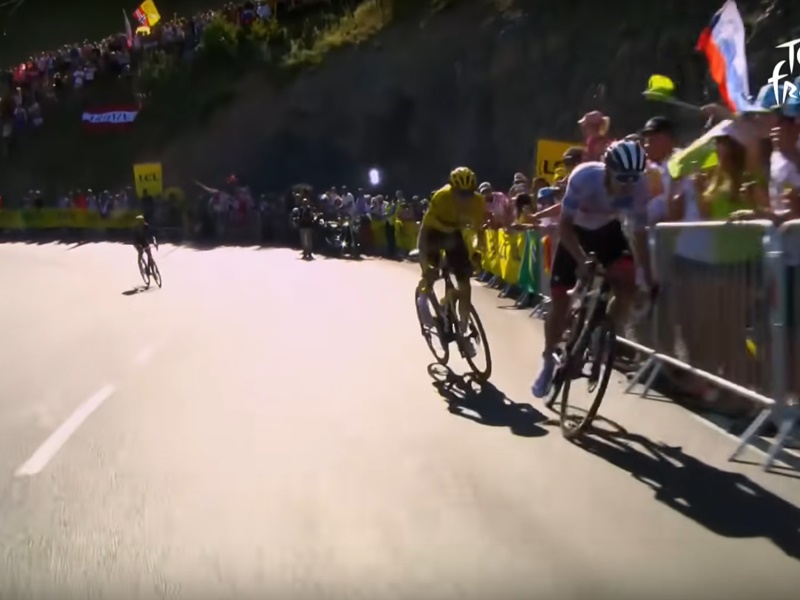
Whatever the mechanics of it, he was attacking Vingegaard again the day after being dropped by David Gaudu. Those two riders were visibly in a different race, unconcerned by anyone else. Pogacar would career off, Vingegaard would stick to him like glue and then the two would slow down again, at which point Geraint Thomas would laboriously claw his way back to them like some shadowy unwelcome guest.
That was how the final climb went and pretty much how it finished. What it says for the rest of the race, I don’t know. No-one is impervious to tiredness – but some seem a lot less susceptible than others.
The stage was won from the break by Olympic cross-country mountain bike gold medallist and cyclo-cross world champion, Tom Pidcock, who is apparently more than comfortable on any kind of bike. That’s a strange thing to say given it was hard to feel comfortable even as a viewer during his descent from the Galibier.
Out of the Alps
That was only the first half of the week, but everyone simmered down a bit after they left the Alps.
The “transitional” Stage 13 brought no changes to the general classification.
Stage 14 had a relatively short, steep finish to Mende, which was enough for Pogacar and Vingegaard to gain another 20-30 seconds on the rest of the top 10, but not enough for either to detach the other.
Stage 15 was a long, hot slog with no time gaps, but meaningful developments all the same.
First Roglic abandoned with back pain stemming from crashing into that hay bale on Stage 5. Then another of Vingegaard’s key climbing helpers, Steven Kruijswijk, broke his collarbone. A short while after that, Vingegaard himself went down, along with another team-mate, Tiesj Benoot.
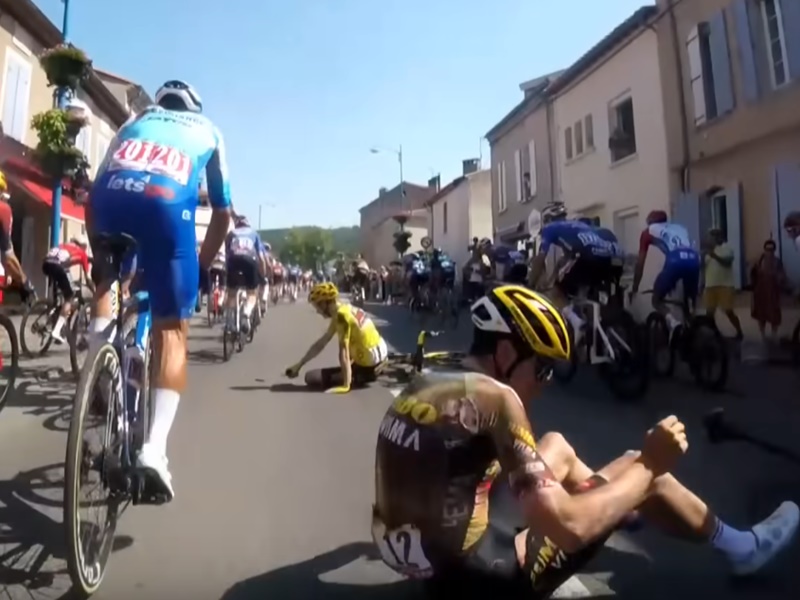
Several other Jumbos succumbed to their efforts while attempting to get their team leader back to the peloton. This wasn’t really an issue in itself, but it doesn’t hint at a team that can easily absorb the work of absent friends. Although they do still have Wout van Aert, who definitely can.
So this is where we are going into the final week.
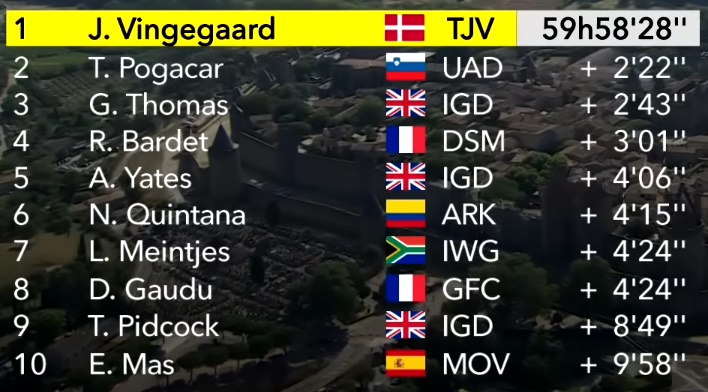
What’s next?
The Pyrenees.
Tuesday (Stage 16) brings a couple of solid climbs in its second half with a descent to the finish.
Wednesday packs more climbs into fewer kilometres with a summit finish (8km at 7.8%) to Peyragudes.
Thursday is the last mountain day and again short and tough. The first 60km is flat, but they then tackle the Aubisque (16.4km at 7.1%) and the Col de Spandelles (10.3km at 8.3%) before a summit finish up Hautacam (13.6km at 7.8%).
Stage 19 is a flat one and then Stage 20 on Saturday brings the final meaningful racing in the form of a mostly-flat 40km time trial. Sunday is pratting around soft pedalling through Paris before belting up and down the Champs Élysées to set up a sprint finish.
I’ll do a final week recap as soon as I can after that. You can sign up for these recaps here. It would also be great if loyal readers could recommend them to anyone else who might be interested. As I’ve mentioned a few times before, I’ve long since lost the will to market the website in any meaningful way, but word of mouth is still bringing people in and I rather like that.
Leave a Reply